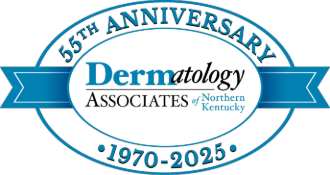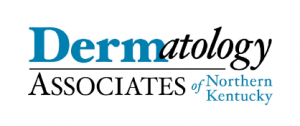 Acne is a prevalent skin condition that affects individuals across various age groups, from teenagers to adults in their 50s and beyond. Understanding the underlying causes and effective treatment options is essential for managing this often frustrating condition. This article explores the different types of acne, their causes, and tailored treatment strategies for each age group, ensuring that everyone can achieve clearer, healthier skin.
Acne is a prevalent skin condition that affects individuals across various age groups, from teenagers to adults in their 50s and beyond. Understanding the underlying causes and effective treatment options is essential for managing this often frustrating condition. This article explores the different types of acne, their causes, and tailored treatment strategies for each age group, ensuring that everyone can achieve clearer, healthier skin.
Understanding Acne: A Universal Challenge
Acne is characterized by the presence of pimples, blackheads, and cysts, primarily caused by clogged pores. These blockages occur when excess oil, dead skin cells, and bacteria accumulate in hair follicles. While acne is most commonly associated with adolescence, it can persist or even emerge later in life due to various factors, including hormonal changes, lifestyle choices, and environmental influences.
Types of Acne
-
- Comedonal Acne: This type includes blackheads and whiteheads, which are non-inflammatory lesions caused by clogged pores.
- Inflammatory Acne: This includes papules, pustules, and cysts, which are painful and can lead to scarring.
- Hormonal Acne: Often seen in adults, this type is linked to hormonal fluctuations, particularly in women during their menstrual cycles or pregnancy.
Understanding the type of acne one is dealing with is crucial for selecting the appropriate treatment.
Teenage Acne: Navigating Hormonal Changes
Causes of Teenage Acne
During puberty, hormonal surges lead to increased oil production, making teenagers particularly susceptible to acne. Factors contributing to teenage acne include:
-
- Hormonal fluctuations: Increased androgen levels stimulate oil glands.
- Excess sebum production: Oily skin can trap dirt and bacteria.
- Environmental factors: Sweat, dirt, and makeup can clog pores.
Effective Treatments for Teenagers
-
- Cleansing Routine: Teens should wash their faces twice daily with a gentle, oil-free cleanser containing salicylic acid or benzoyl peroxide. Over-washing can lead to dryness, prompting the skin to produce more oil.
- Spot Treatments: Applying benzoyl peroxide or salicylic acid directly to blemishes can help reduce inflammation and clear up existing pimples.
- Non-Comedogenic Products: Using skincare and makeup products labeled as non-comedogenic can prevent further clogging of pores.
- Professional Help: If over-the-counter treatments are ineffective, consulting a dermatologist for prescription options like retinoids or antibiotics may be necessary.
Young Adult Acne: Stress and Lifestyle Factors
Causes of Young Adult Acne
As individuals transition into their 20s, various factors can trigger acne, including:
-
- Stress: Increased cortisol levels can lead to heightened oil production.
- Diet: High sugar and dairy intake may exacerbate acne.
- Hormonal changes: Fluctuations related to menstrual cycles can trigger breakouts.
Treatment Strategies for Young Adults
-
- Gentle Cleansers: Using a mild cleanser with salicylic acid can help maintain clear pores without irritating the skin.
- Oil-Free Moisturizers: Hydration is essential, but it should come from non-comedogenic products that won’t clog pores.
- Lifestyle Adjustments: Managing stress through exercise, meditation, and adequate sleep can significantly impact skin health.
- Retinol Treatments: Incorporating retinol can help prevent acne while addressing early signs of aging.
Adult Acne: Hormonal Shifts and Sensitivity
Causes of Adult Acne
Many adults experience acne due to hormonal imbalances, particularly during significant life changes such as pregnancy or menopause. Other contributing factors include:
-
- Hormonal fluctuations: Changes in estrogen and progesterone can lead to breakouts.
- Stress: Ongoing stress can trigger acne flare-ups.
- Skincare Products: Heavy creams and oils can clog pores.
Treatment Options for Adults
-
- Simplified Skincare Routine: A straightforward regimen using gentle products can help avoid irritation and excessive oil production.
- Glycolic Acid and Retinoids: These ingredients can help manage acne while also addressing signs of aging.
- Hydration: Lightweight, non-comedogenic moisturizers are essential for maintaining skin balance.
- Hormonal Treatments: For persistent acne, hormonal therapies such as birth control pills or spironolactone may be beneficial.
Mature Skin and Acne: Navigating the Golden Years
Causes of Acne in Older Adults
Even after menopause, some individuals may continue to experience acne due to:
-
- Decreased estrogen levels: This can lead to oil imbalances.
- Increased skin sensitivity: Aging skin may react differently to products.
- Medications: Certain prescriptions can trigger acne-like symptoms.
Treatment Approaches for Mature Skin
-
- Hydrating Cleansers: Gentle, hydrating cleansers can help maintain skin balance without stripping essential oils.
- Fragrance-Free Products: Opting for non-comedogenic and fragrance-free skincare can minimize irritation.
- Active Ingredients: Incorporating niacinamide and hyaluronic acid can provide hydration and soothe the skin.
- Professional Treatments: Options like microneedling or chemical peels can address both acne and signs of aging.
Holistic Approaches to Acne Management
The Role of Diet and Lifestyle
Diet and lifestyle choices play a significant role in acne management. A balanced diet rich in fruits, vegetables, and lean proteins can support skin health. Additionally, staying hydrated and managing stress through relaxation techniques can contribute to clearer skin.
Stress Management Techniques
-
- Exercise: Regular physical activity can help reduce stress and improve overall well-being.
- Mindfulness Practices: Techniques such as yoga and meditation can help manage stress levels.
- Adequate Sleep: Prioritizing sleep can enhance skin recovery and overall health.
Professional Treatments: When to Seek Help
When to Consult a Dermatologist
If over-the-counter treatments fail to provide relief, it may be time to consult a dermatologist. Signs that professional help is needed include:
-
- Persistent or severe acne that does not respond to home treatments.
- Acne that causes significant emotional distress or impacts daily life.
- The presence of cystic or nodular acne, which can lead to scarring.
Available Professional Treatments
-
- Topical Prescriptions: Dermatologists may prescribe stronger topical treatments, including retinoids and antibiotics.
- Oral Medications: For severe cases, oral antibiotics or isotretinoin may be recommended.
- Laser Therapies: Advanced treatments like Smoothbeam and Vbeam can target oil glands and reduce inflammation.
The Importance of a Consistent Skincare Routine
Building a Skincare Regimen
A consistent skincare routine is vital for managing acne effectively. Key components include:
-
- Cleansing: Regular cleansing helps remove excess oil and impurities.
- Moisturizing: Hydration is essential, even for oily skin types.
- Sun Protection: Using sunscreen daily can prevent further skin damage.
Adjusting Your Routine
As skin changes with age, it’s important to adjust your skincare routine accordingly. Regularly reassessing your products and techniques can help maintain skin health.
We help Patients with All Sorts of Skin, Hair, and Nail Challenges
General Dermatology encompasses the complete range of disease and conditions of skin, hair and nails. Our goal is to help each of our patients achieve healthy, beautiful skin through proper skin care, skin surveillance, and accurate diagnosis and treatment of skin disease.
> Learn More
Acne is a common challenge that can affect individuals at any stage of life. By understanding the unique causes and treatment options available for each age group, individuals can take proactive steps toward achieving clearer skin. Whether through a consistent skincare routine, professional treatments, or holistic approaches, managing acne is possible. Embrace the journey to healthy skin, and remember that support is available at every step.
Contact Us (859) 283-1033 for a Consultation
—
 About Dermatology Associates of Northern Kentucky
About Dermatology Associates of Northern Kentucky
Dermatology Associates of Northern Kentucky offers a range of services for all age groups, including general and pediatric dermatology, dermatologic surgery, Mohs Micrographic surgery, laser and cosmetic procedures, and Dermatopathology.
> Learn More

 About Dermatology Associates of Northern Kentucky
About Dermatology Associates of Northern Kentucky